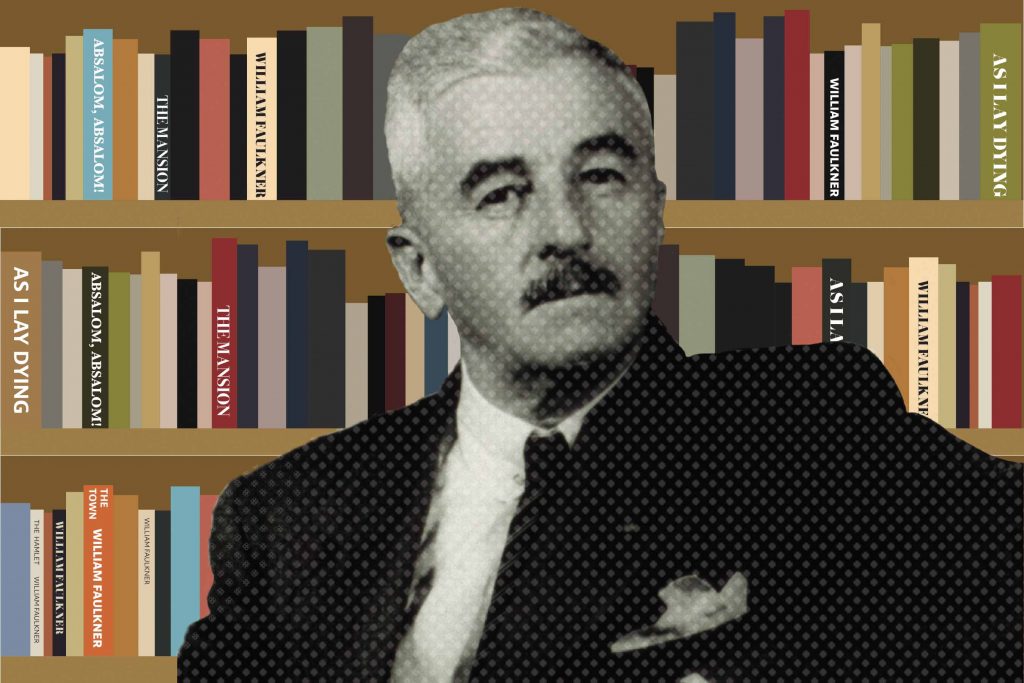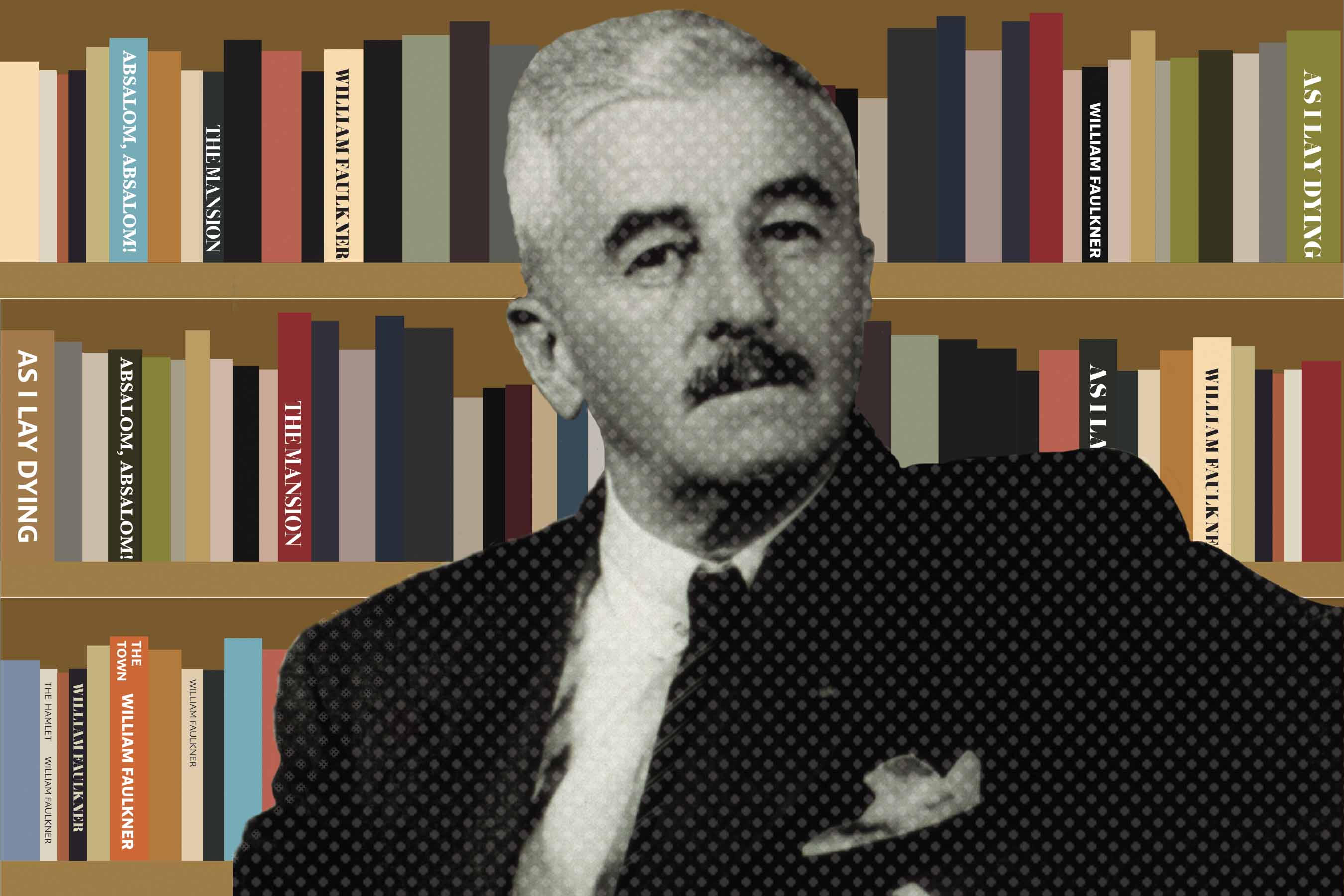
Correction: An earlier version of this article should have reported that William Faulkner won the Nobel Prize for Literature in 1949. He was not eligible for the prize in 1958, when Boris Pasternak won, and the two were not competing.
An earlier version of this article should have also reported that Faulkner scared the children by making noises around the house after he told ghost stories with his stepdaughter Cho Cho, not Dean.
A new documentary, “Thinking of Home: Falkner House and Rowan Oak,” focuses on author William Faulkner and his family’s home life at the two homes he lived in in Oxford.
Larry Wells, husband of Faulkner’s late niece Dean Faulkner Wells, narrates the film that takes viewers inside the Falkner House, which is not open to the public but is marked by a historical placard on South Lamar Boulevard. Dean and her husband lived at the home for their entire adult lives after Faulkner’s mother, Maud, lived there and Faulkner himself grew up in the house.
The film displays many of Maud’s paintings inside the Falkner House. A devoted painter, Larry said that Faulkner derived his artistic talents from his mother.
“I think William was more (Butler) than Falkner,” he said, “especially in his artistic abilities.”
Larry recounted a practice that involved Maud subtly changing family paintings within the house and waiting for the men to notice. He argued that this was her revenge on the male-dominated family, and it left an inerasable impression on the young Faulkner, whom she brought with her for these activities.
“Maud’s revenge on the Falkner patriarchy was bringing William to watch her,” he said.
Faulkner, who, along with his brother, John, re-added the “u” to the Falkner last name after two generations of its removal, bought Rowan Oak in 1930.
When he bought the dilapidated house to renovate it, it had no name. He lived on the nameless property for two years before naming it “Rowan Oak” in 1932 after the Scottish rowan tree and the oak tree, neither of which are located on the property. He simply felt the property conveyed the spirit of those two trees.
Larry recounts the time Faulkner was informed at the dinner table in Rowan Oak that Boris Pasternak, a Russian author, won the 1958 Nobel Prize in Literature. Dean answered the phone call, which was an unusual practice in the Faulkner house at dinner time, as Faulkner did not normally allow it.
CBS correspondent Edward Murrow identified himself over the phone, asking to speak to Faulkner. The author had his niece take the message, and Murrow said that Pasternak had won, asking for a statement from Faulkner. Faulkner instructed his niece on what to tell Murrow.
“It’s a political hoax,” he said.
Larry commented that despite this statement, he personally believes that Faulkner understood the gravity of Pasternak being chosen in the context he was. He also noted that Faulkner kept a copy of Pasternak’s “Doctor Zhivago” in his library.
“I think the Nobel Committee wanted to commemorate that Pasternak could even get that book published at a time when there was repression in Russia, to give them a seat at the table,” Larry said. “I think it was a good decision, not a political hoax.”
The documentary recounts Faulkner’s love of telling ghost stories, and how he would tell his young children and niece stories about fictional character Judith Sheegog, daughter of original Rowan Oak owner Col. Robert Sheegog. Judith jumped to her death from the home’s second-story window because of unrequited love, and her body is buried at Rowan Oak, according to Faulkner’s stories.
One night, Faulkner asked Cho Cho, his stepdaughter, to make noises around the house to scare the other Faulkner children into thinking it was Judith’s ghost, and when he and the children searched the house, they could not find the source. Dean recounted these stories in her 1980 book, “The Ghosts of Rowan Oak: William Faulkner’s Ghost Stories for Children.”
Wells said that aside from him being the famous Nobel Prize-winning author, viewers should take away from the documentary a sense of William Faulkner’s humanity and how the Falkner House and Rowan Oak made the man.
“We see Faulkner not just as an author, but also as a father and a caregiver,” he said, “and I think that matters. I hope (the documentary) will be shown at Rowan Oak for a long time.”
















